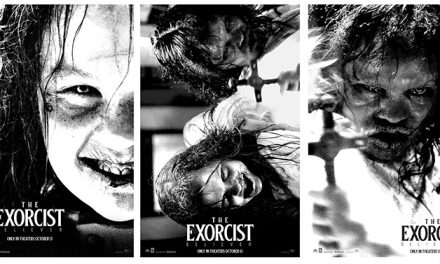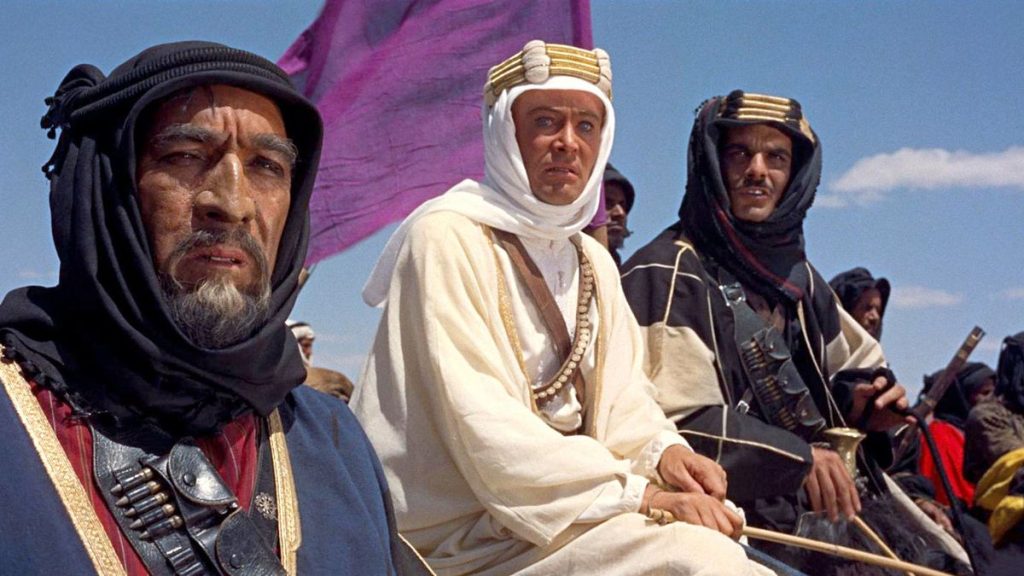
David Lean’s Lawrence of Arabia is widely regarded as one of the greatest films ever made. For film enthusiasts, history buffs, and those looking to start a career in Hollywood, Lawrence of Arabia offers an experience that is visually stunning, intellectually compelling, and emotionally profound.
On the other side of that, it’s also a film that’s three and a half hours long with a good chunk of it’s runtime showcasing men riding around in the desert. While considered an “epic”, I don’t think a majority of people would consider this the best film they’ve ever seen, but I do believe it’s worthwhile.
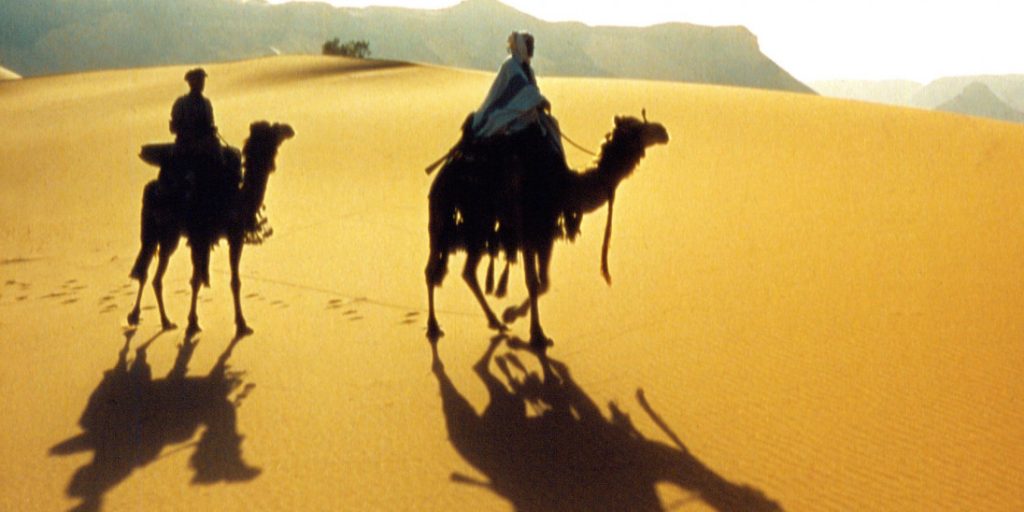
The Stunning Visuals
One of the most striking aspects of Lawrence of Arabia is just how impressive its visuals are. (The “match cut” is regarded as one of film’s greatest transitions.) Shot on location in the vast deserts of Jordan, Morocco, and Spain, the film captures the sweeping beauty of the desert landscape like no other. Cinematographer Freddie Young’s use of the widescreen format is breathtaking, showcasing seemingly endless horizons. Young understood color, light, and shadow. Each frame is like a painting, inviting viewers to lose themselves in the stunning visuals.
As a film nerd who wants to know how things are made, it is impressive to note that some shots could only get one take in a day. If something or someone was wrong, it would take hours to make the footprints in the sand disappear. With hundreds of extras, horses, and camels trouncing through the desert, these shots are one of a kind. If for nothing else, this is why you watch Lawrence of Arabia.
Lawrence is a Character Study
At the heart of the film lies the enigmatic character of T.E. Lawrence, played brilliantly by Peter O’Toole. It explores the contradictions and complexities of Lawrence, a British officer who becomes a key figure in the Arab Revolt during World War I. Lawrence is portrayed as both heroic and flawed—a man torn between his personal ambition and moral uncertainty.
O’Toole’s portrayal of Lawrence is one of the most memorable performances in film history. He captures the character’s charisma, arrogance, vulnerability, and internal struggles with stunning precision. Through Lawrence, the film delves into larger themes of identity, power, and the consequences of war, offering a nuanced exploration of human nature. There are plenty of war films, but this feels much less about the war and more about the rise and (sort of) fall of a singular character.
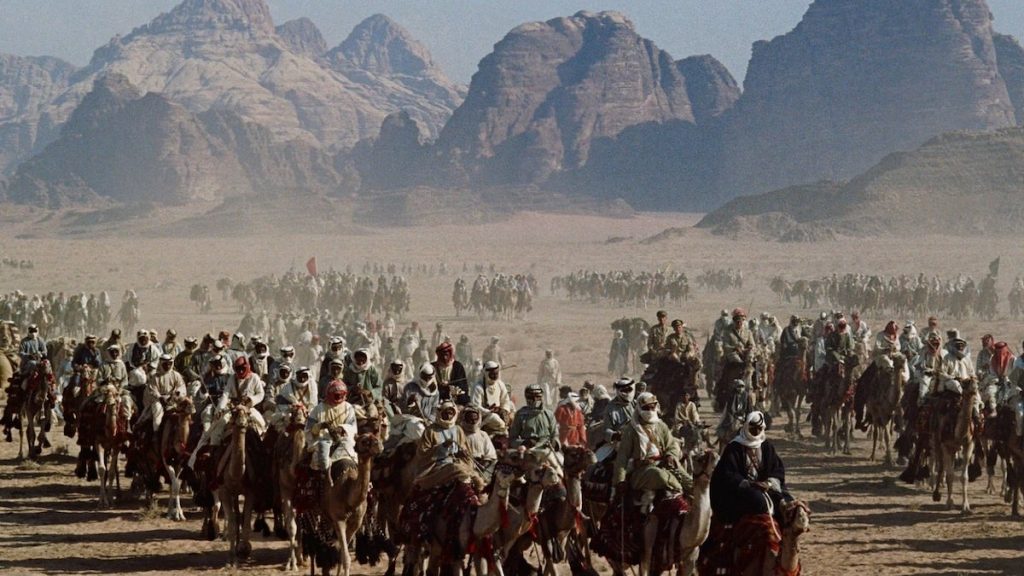
A Relevant Middle Eastern Story
Lawrence of Arabia is based around the Arab Revolt against the Ottoman Empire during World War I. The film does take liberties with it’s characters, especially with Lawrence, but there is real history to see. It provides a window into a crucial moment in Middle Eastern history where tribes united to overthrow an Empire.
The film also raises questions about the role of Western powers. It discusses how they shape the geopolitical landscape. These are themes that remain relevant to this day. It challenges viewers to reflect on the consequences of foreign intervention and the cultural misunderstandings that can arise when worlds collide.
That Musical Score!
If you are one of those people who listen to film scores on vinyl, this movie is for you. From the moment the film begins, Maurice Jarre’s music sets the tone for the journey ahead. His sweeping orchestral themes evoke the grandeur, mystery, and loneliness. It becomes as integral to the film as its visuals or performances. The score’s emotional beats elevate key moments, making them unforgettable.
It’s clear to see the influence on other scores and writers. It sounds like so many scores by John Williams, yet it has its own flare. You can hear how Hans Zimmer would be inspired by this. Like David Lean’s direction for this movie and his attention to detail, Jarre’s music really becomes the lesson that many would learn from in the decades after.
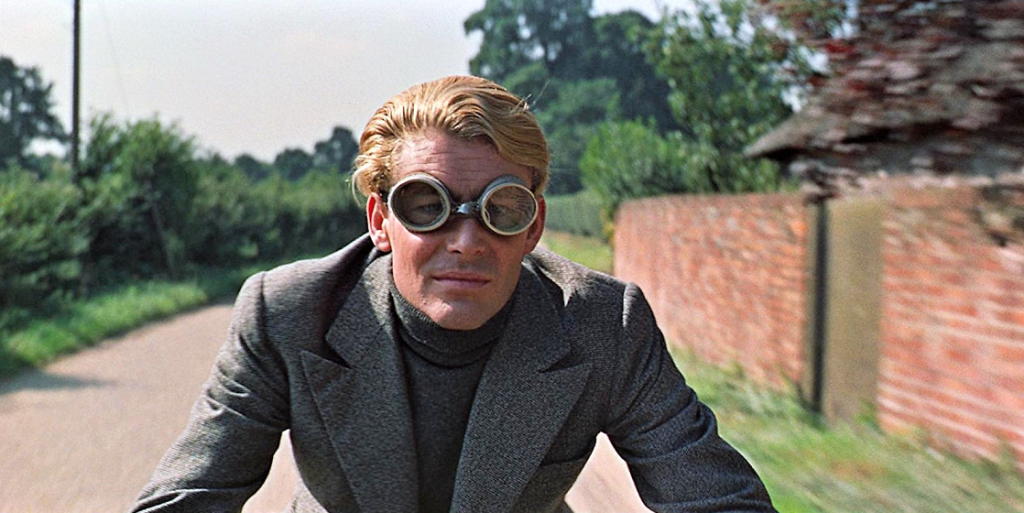
Directing Intimacy in War
Speaking of David Lean, he crafted a film that is both epic in scope and intimate in its character study. He strikes a perfect balance between grand action sequences and quiet, contemplative moments. Those can be either fascinating or absolutely boring depending on how you watch films. Personally, I found moments where you watched Lawrence think to be a bit long. I much prefer the moments of outrage and heroism from our lead character. I can’t deny that these moments aren’t greatly acted and well directed.
Lean’s ability to tell a complex story without compromising the visual and emotional power is masterful. Every scene serves a purpose, building towards a conclusion that is both thought-provoking and deeply moving. Not everything will strike a chord with viewers, but as the credits role, you’ll think about the peaks more than the valleys.
An Exploration of Humanity
Beyond its technical brilliance, Lawrence of Arabia resonates because of its universal themes. It is a film about identity, ambition, and the search for meaning. Through Lawrence’s journey, the film examines the nature of heroism and the price of being a hero. It asks what lengths we will go to. It shows how easily we can get lost in power. Our morality is questioned as is Lawrence.
Culturally, there are themes about how we see others. Do we think less of those from other regions? What does it mean to be civilized? Does what we wear or the color of our skin change the perception of others? It is this enduring relevance that ensures Lawrence of Arabia remains as powerful and meaningful today as it was upon its release.
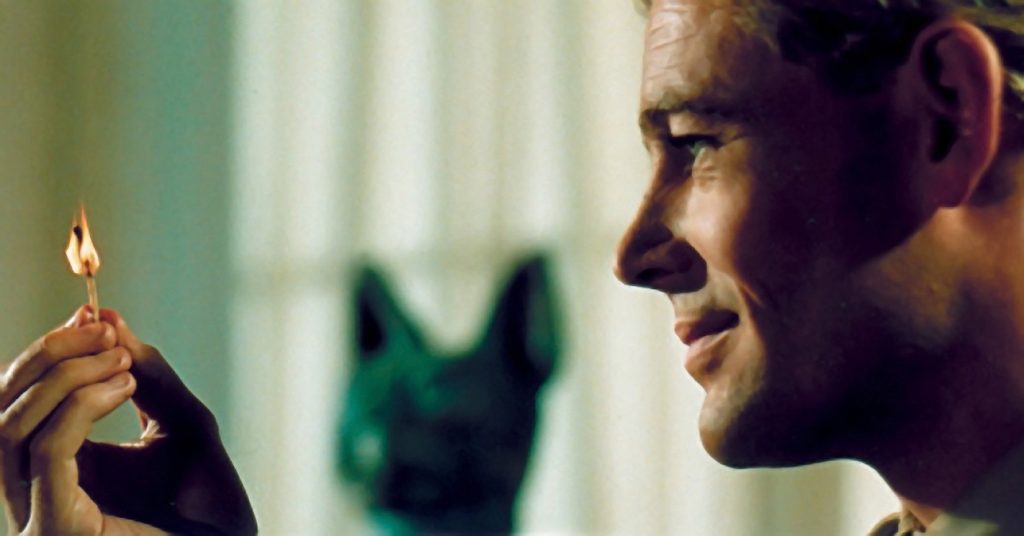
Why You Should Watch Lawrence of Arabia
Not everything may click. It took me three different tries before I eventually braved the long runtime. Within several sittings, I questioned if I should continue. Ultimately, I’m glad I did. Lawrence of Arabia is a film you should watch. Maybe you’ll learn how to create better visuals as a filmmaker. Some might take away serious lessons in geopolitical history. Whatever you are searching to for, you may find it in the desert alongside Lawrence. Approach this film with an open mind, the biggest screen you can find, and speakers blaring. I’ve recommended films before, like the silent Nosferatu. I promise I am not steering you into something boring.
For more on Movies, make sure to check back to That Hashtag Show.

![‘Lawrence of Arabia’ – Why You Should Watch a 3-Hour Epic [Classic Rewatch]](https://thathashtagshow.com/wp-content/uploads/2024/12/LAwrence-1280x640.jpg)



![Fantastic Beasts: The Secrets of Dumbledore – Nostalgia Abounds [Review]](https://thathashtagshow.com/wp-content/uploads/2022/04/277416548_371782631503761_8356953734840312519_n-440x264.png)
